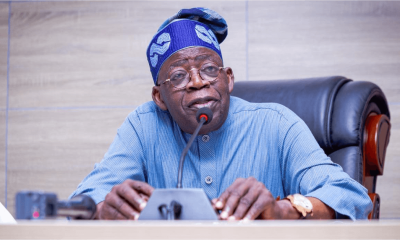Nigeria News
Kano Govt Defends Blasphemy Laws Against ECOWAS Court Verdict

The Kano State Government has strongly defended its blasphemy laws following a ruling by the Economic Community of West African States (ECOWAS) Court of Justice, which declared certain aspects of the laws inconsistent with international human rights standards.
The state maintains that it has the constitutional right to uphold the sanctity of its religious values within its jurisdiction, sparking a continued debate on the issue.
In a statement issued to Punch, the state’s Commissioner for Information and Internal Affairs, Ibrahim Waiya, stated that external pressures would not sway Kano and would continue to uphold its religious and moral beliefs.
He emphasized that the laws were in line with the values of the predominantly Muslim population in the state.
“We will not be deterred by external pressures. Our responsibility is to uphold the values of our society, which are grounded in religious and moral beliefs. While we respect international opinions, our laws are a reflection of our people’s will,” Waiya said.
He went on to clarify that the state’s defense of its blasphemy laws was rooted in Nigeria’s federal system, which allows states to enact laws that reflect local social, moral, and religious contexts.
“The Kano government’s defense is rooted in Nigeria’s federal system, where states retain the right to enact laws reflecting local social, moral, and religious contexts,” he added.
Waiya reiterated that the people of Kano had entrusted the government with the responsibility of maintaining peace and protecting their religious values, and the blasphemy laws were central to fulfilling this duty.
“The people of Kano have entrusted us with the responsibility to maintain peace and protect their religious values. These laws are central to that mission, and they will remain firmly in place,” he asserted.
While acknowledging the ECOWAS Court’s judgment, which questioned the compatibility of the laws with international human rights norms, Waiya reaffirmed Kano’s commitment to safeguarding religious sanctity and public order.
“We fully respect the court’s authority, but the laws that govern our state must reflect the unique moral and religious fabric of our people,” he said.
The Kano State Government further argued that its blasphemy laws are not an anomaly but rather a recognition of Nigeria’s legal pluralism.












